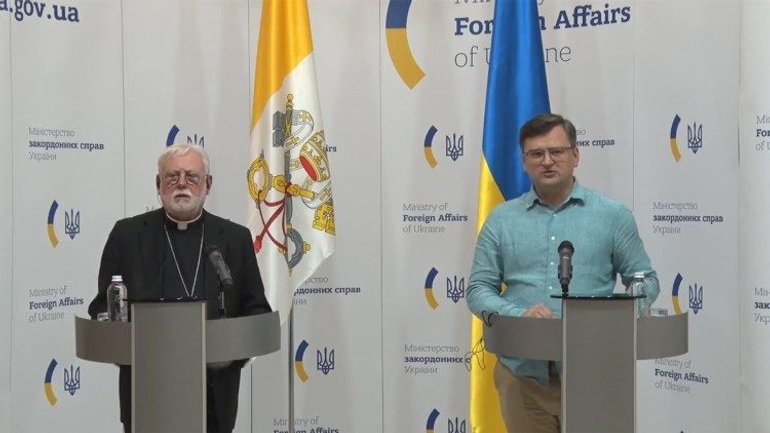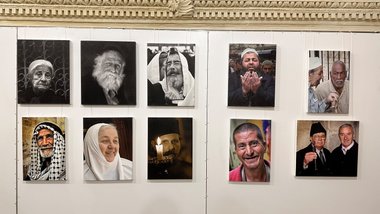"The Vatican is ready to mediate between Ukraine and Russia, if it is their will," - Archbishop Paul Richard Gallagher

"Any mediation activity requires the invitation of both parties. If the Holy See receives an invitation from Ukraine and Russia to help in any possible way in the negotiation process, we would welcome it and try to help it in every possible way," Vatican Secretary for Interstate Relations, Archbishop Paul Richard Gallagher, said at a joint press conference with Ukrainian Foreign Minister Dmytro Kuleba on May 20.
Previous attempts to resolve the conflict between Ukraine and Russia have failed, the Vatican official added.
"The purpose of my visit," said the secretary for relations with states, "is to demonstrate the closeness of the Holy See and Pope Francis to the Ukrainian people, in particular in the light of Russia's aggression against Ukraine. And I assure you that both the Holy Father and his closest associates, including myself, are suffering greatly due to numerous deaths, various kinds of violence, the destruction of cities and infrastructure, the separation of many families, millions of displaced people and refugees."
Archbishop Gallagher added that his visit is also an expression of the special attention of the Holy Father to Ukraine, which he demonstrated through Apostolic Elemozinari Konrad Krajewski and Cardinal Michael Cerny, Prefect of the Dicastery of service to holistic human development.
He stressed that the meeting with Minister Dmytro Kuleba and other representatives of state and local authorities, as well as with some religious figures and persons who suffered greatly as a result of the war, allowed him to "touch the wounds of the Ukrainian people and hear their fervent plea for peace."
The Vatican representative also noted that on the same day in the morning he visited "three long-suffering cities": Vorzel, Bucha and Irpin. He stressed that he noticed that in these cities people lived normal lives, in good conditions, in beautiful homes. And at the same time, he saw the horrors of war, visiting places where there were mass graves.
"For too long, we have convinced ourselves that war in Europe is impossible, that such things will not happen again. Nothing has happened since 1946, except for what happened in the Western Balkans in the 90s," he stressed, adding that it is amazing when we see such horrors in the heart of Europe.
The Vatican diplomat stressed that this is a real wake-up call to say: "Let's not take peace for granted." "Peace is a gift from God," he concluded, " but it is also something that people of good will, regardless of religion or political affiliation, should constantly work on. And if we don't do it, we do it at our own risk, as eloquently demonstrated in Bucha."
The Secretary for Relations between the Holy See and the States expressed gratitude to the Ukrainian authorities, the Catholic Church and other churches and religious organizations "for their efforts to establish peace, hoping that the combined efforts of the whole world will put an end to destruction and death."
Regarding the possibility of Pope Francis' visit to Ukraine, the head of Vatican diplomacy noted that the Pope is very sensitive on issues such as the situation in Mariupol.
"He knows that this visit is wanted, and he is more than ready to help either by himself or through his direct staff," the Archbishop said, adding that when he returns to Rome, he will definitely tell what he saw, what people are saying, and tell the pope about people's expectations. "And I am sure that he will take this very seriously, then we will see what decision he will make, which will most meet, foremost, the interests of the people of Ukraine and world peace."
Gallagher recalled that Pope Francis is aware of the events in Ukraine, including Mariupol. Azov fighters' wives, Kateryna Prokopenko and Yulia Fedosyuk, recently met with the Pontiff and asked him to help save their husbands.










